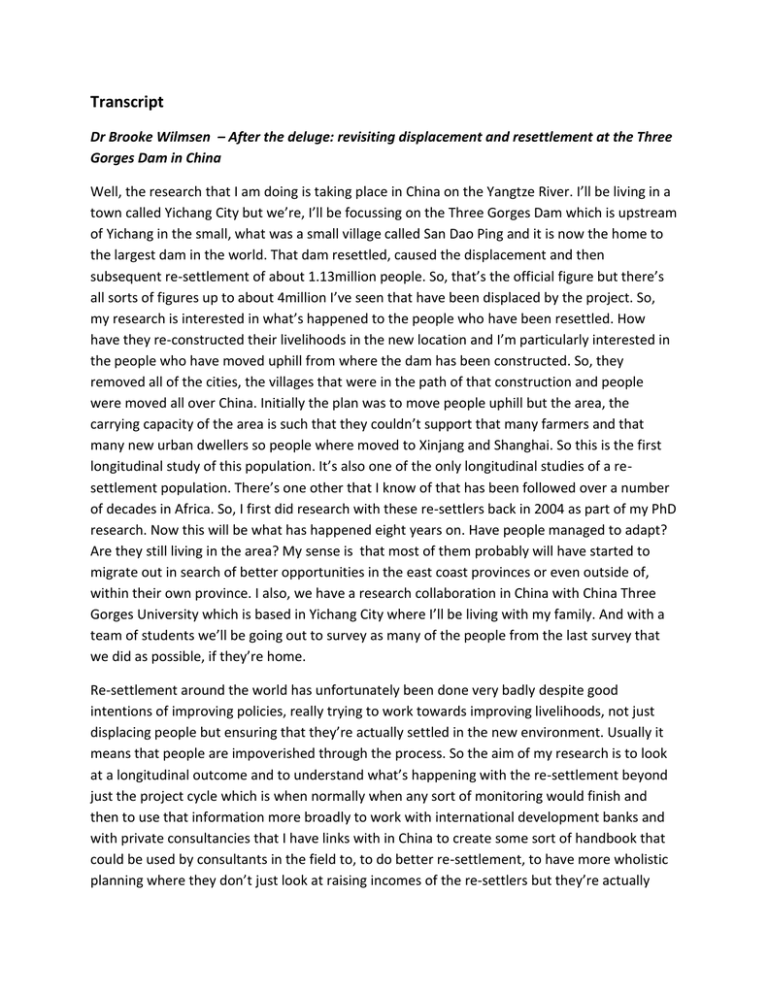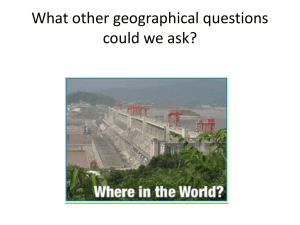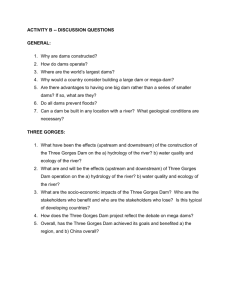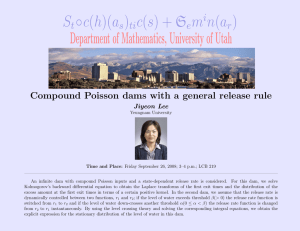Dr Brooke Wilmsen Transcript
advertisement

Transcript Dr Brooke Wilmsen – After the deluge: revisiting displacement and resettlement at the Three Gorges Dam in China Well, the research that I am doing is taking place in China on the Yangtze River. I’ll be living in a town called Yichang City but we’re, I’ll be focussing on the Three Gorges Dam which is upstream of Yichang in the small, what was a small village called San Dao Ping and it is now the home to the largest dam in the world. That dam resettled, caused the displacement and then subsequent re-settlement of about 1.13million people. So, that’s the official figure but there’s all sorts of figures up to about 4million I’ve seen that have been displaced by the project. So, my research is interested in what’s happened to the people who have been resettled. How have they re-constructed their livelihoods in the new location and I’m particularly interested in the people who have moved uphill from where the dam has been constructed. So, they removed all of the cities, the villages that were in the path of that construction and people were moved all over China. Initially the plan was to move people uphill but the area, the carrying capacity of the area is such that they couldn’t support that many farmers and that many new urban dwellers so people where moved to Xinjang and Shanghai. So this is the first longitudinal study of this population. It’s also one of the only longitudinal studies of a resettlement population. There’s one other that I know of that has been followed over a number of decades in Africa. So, I first did research with these re-settlers back in 2004 as part of my PhD research. Now this will be what has happened eight years on. Have people managed to adapt? Are they still living in the area? My sense is that most of them probably will have started to migrate out in search of better opportunities in the east coast provinces or even outside of, within their own province. I also, we have a research collaboration in China with China Three Gorges University which is based in Yichang City where I’ll be living with my family. And with a team of students we’ll be going out to survey as many of the people from the last survey that we did as possible, if they’re home. Re-settlement around the world has unfortunately been done very badly despite good intentions of improving policies, really trying to work towards improving livelihoods, not just displacing people but ensuring that they’re actually settled in the new environment. Usually it means that people are impoverished through the process. So the aim of my research is to look at a longitudinal outcome and to understand what’s happening with the re-settlement beyond just the project cycle which is when normally when any sort of monitoring would finish and then to use that information more broadly to work with international development banks and with private consultancies that I have links with in China to create some sort of handbook that could be used by consultants in the field to, to do better re-settlement, to have more wholistic planning where they don’t just look at raising incomes of the re-settlers but they’re actually considering their, all the different forms of capital the re-settlers have including their social, human, all those social networks that get dissolved by being displaced and really thinking more broadly about what it is, what a livelihood is and what it means to be displaced and to have that livelihood interrupted. So, that’s probably the main outcome I suppose of the research and that will really be a Part 2 of the research because I will spend a lot of time with these organisations creating something that’s also useful to them in the field and practical because at the end of the day these are planners that need to go out there and work out how populations can move so that they can, can construct these projects.


